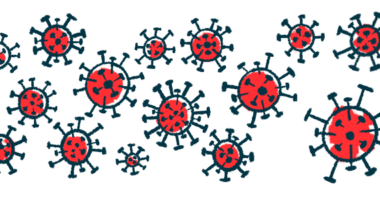$20M gift to boost research, care at Norton Neuroscience Institute
Donation is from estate of longtime supporter Elizabeth Pahk Cressman

The estate of a longtime supporter of the Norton Neuroscience Institute at Norton Healthcare has gifted the center $20 million to help expand programming and research in Parkinson’s disease and other movement disorders.
The donation from the estate of Elizabeth Pahk Cressman, MD, PhD, will aid the Louisville, Kentucky-based institute’s Just Imagine growth campaign, which seeks to “further transform and improve complex neurological care” to meet a burgeoning demand, according to a Norton Healthcare press release.
The gift will help ensure better access to medical expertise and expand innovative clinical research at the institute’s Cressman Parkinson’s and Movement Disorders Center, which was established with a previous donation. The gift will aid in recruiting and training more specialists, and help establish exercise groups for patients, patient support groups through the institute’s Resource Centers, and individual therapy through Cressman Neurological Rehabilitation.
Cressman’s husband, Frederick K. Cressman, MD, died in 2010, seven years after his Parkinson’s diagnosis. He had been a Norton Healthcare pathologist.
“Parkinson’s disease can be extremely debilitating and, unfortunately, there currently is no cure,” said Justin T. Phillips, MD, a movement disorders neurologist at the Cressman center. “With Dr. Cressman’s generosity, we are able to build upon the work we already do and offer even more options for patients. She has already had a great impact on people with Parkinson’s in our community, and that will continue for years to come.”
Care, research in Parkinson’s
At the Parkinson’s center, Phillips and Jason L. Crowell, MD, treat patients using the latest therapies and procedures, including deep brain stimulation, a surgical treatment that aims to interrupt the abnormal signaling patterns that cause tremor and other motor symptoms. Future care may include neuron repair treatments, gene therapies, and modulation of gut-brain interactions. Gut activity can directly influence brain function, according to recent research, and scientists are studying its relationship to Parkinson’s.
Shirish S. Barve, chief research scientist for the Norton Neuroscience Institute and Norton Research Institute, is an expert on that relationship. He and his team, including Smita S. Ghare, PhD, have received federal funding to study changes in gut-brain interactions.
“We know that the gut is constantly influenced by lifestyle issues, including aging, lack of sleep, stress, and diet,” said Barve, PhD. “We want to understand the impact of lifestyle on gut bacteria and associated immune responses in the development of neuroinflammation and degeneration that lead to Parkinson’s disease and related neurodegenerative disorders that affect brain function. We are hopeful this translational research will lead to better preventive and treatment options for these disorders and improve patient care.”
Cressman, who died in 2021, was an anesthesiologist at what is now Norton Women’s & Children’s Hospital, where she helped fund the establishment of the Cressman Critical Care Center. With this latest gift, Cressman or her estate have contributed $28 million to the institute and Norton Healthcare.
“During her lifetime, Dr. Cressman’s vision has helped elevate the care for Parkinson’s patients — helping to create a nationally known program through Norton Neuroscience Institute,” said Lynnie Meyer, RN, EdD, senior vice president and chief development officer of Norton Healthcare. “She also was the catalyst behind funding Parkinson’s disease research that already has helped transform the lives of many patients and families through access to more groundbreaking treatments.”







